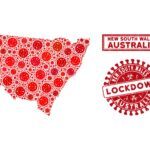Bogus Books Delivered to Sydney Mosques Defame Uyghur Leader

Two weeks ago, boxes containing hundreds of copies of a book defaming the character of exiled Uyghur leader Rebiya Kadeer were mysteriously dropped off out the front of several Sydney mosques. The incident seems to be an attempt to discredit the renowned activist’s reputation amongst her local supporters – most Uyghurs being Muslims.
A total of 22 boxes containing 308 books were left out the front of the Auburn Gallipoli Mosque, Bonnyrigg Mosque, another undisclosed mosque and a popular Turkish restaurant.
And this is not the first time the boxes have appeared at mosques – a similar incident occurred in July of this year.
Response from World Uyghur Congress
Dolkun Isa is the secretary general of the Munich-based World Uyghur Congress (WUC), a democratically-elected body representing Uyghur people throughout the world.
He told Radio Free Asia that his organisation has been shown security footage of the books being dropped off, and they’d concluded those leaving the books are of Chinese origin.
According to Isa, the books are written in the rhetoric of the Chinese Communist Party and he doubts they’ll have any impact on the international community, due to their lack of objectivity. The WUC has contacted Australian authorities about the incident.
The bogus book
The book, titled The Uyghur Enigma: Discover Rebiya Kadeer, is on sale at Amazon.com for $27.
The blurb outlines that despite the way Kadeer “has portrayed herself to the west… as a beloved representative of her people… her own words reveal a different Rebiya Kadeer.” It then goes onto to describe the former businesswoman as a black marketeer, a tax fraud and a manipulator of her associates.
But the book itself appears to be a fraud. There’s no information about the listed authors, who bizarrely have the same names as two historical English-speaking figures. The first is Alexander Dalrymple, the eighteenth century Scottish geographer, and the other Paul Laurence (Dunbar), the nineteenth century American poet and novelist.
The Polish publisher of the book is Adam Marszalek and a quick search of the relevant website reveals tit has strong ties with publishers in China.
Rebiya Kadeer
Rebiya Kadeer used to be the fifth richest person in China. She was a successful businesswoman and philanthropist. In the mid-90s, the Chinese communist party gave her a seat in the Chinese People’s Political Consultative Conference.
But in 2000, she was imprisoned for allegedly threatening national security. Her crime was to send sensitive newspaper clippings overseas. After the US government intervened, Kadeer was released from prison in March 2005 and joined her family, who had already fled to the United States.
Today, the 69-year-old mother of eleven lives in Washington DC. She’s the president of the WUC and the most prominent Uyghur activist on the international scene.
The repression in far west China
The Uyghurs are a Turkic Muslim people who live in the far northwest region of modern day China.
The official Chinese name for the area is the Xinjiang Uyghur Autonomous Region, but to Uyghurs it’s the country of East Turkestan. In 1949, the People’s Liberation Army, under the leadership of Chairman Mao, marched into region and took control.
In present day Xinjiang, the Uyghur people suffer harsh repression under Chinese rule. There are restrictions on men growing facial hair, women wearing head scarves and religious worship.
Government employees and students are restricted from fasting during Ramadan. The teaching of the Uyghur language at schools is banned, mosques have been closed and ancient Uyghur areas of cities like Kashgar have been demolished.
Violent reprisals
On July 5 2009, a peaceful protest by Uyghur people in the Xinjiang capital of Urumqi turned into a violent clash with police. During the riot and its aftermath, hundreds were killed and thousands imprisoned. This resulted in a further crackdown by Chinese authorities in the area, which has continued ever since. And this repression has led to violent reprisals that peaked around 2013 and 14.
In October 2013, a jeep carrying three Uyghur people drove into a crowd of tourists out the front of the Forbidden City in Beijing, killing four.
On March 1 2014, five knife-wielding men and women attacked people at Kunming railway station in the southwestern province of Yunnan, killing 29. In April that same year, two men detonated bombs at Urumqi station, killing themselves and one other person.
While in May, two trucks drove through crowds at an open market in Urumqi, tossing explosives out their windows. Thirty-one were killed and 94 injured.
The implications in Australia
In Australia, it is believed China keeps a close watch over Uyghur refugees.
In September 2011, the Australian Refugee Review Tribunal concluded that the activities of Uyghurs living in the country were likely to be reported to Chinese authorities. This conclusion was drawn in a review of an asylum application of an unnamed Uyghur man. The tribunal found that if he returned to China, he was at risk of persecution and was therefore granted asylum.
However, it seems Australia could be passing on sensitive information to China about our neighbouring region in the future. Last month, a meeting was held in Canberra titled Terrorism and Counter Terrorism in China; Domestic and Foreign Policy Dimensions. Organised by the Australian National University, the meeting discussed the potential for more terrorist activity occurring in the local region and increased cooperation between China and Australia over these matters.
This may have an effect on Uyghurs fleeing China. Over recent years, due to the tightening of the western Chinese border, many Uyghurs have fled the country into South East Asia. They’re on their way to Turkey – where they’re granted asylum – via Malaysia. But China claims many of these people are traveling on into Syria and Iraq to join Islamic State.
Speaking at the Canberra conference, Professor Michael Clarke an associate professor at the National Security College, said that China did have a problem with terrorism in the western region but they do not make an official distinction between separatism and terrorism. He warned that Australia has “to distinguish between incidents that are driven by repression as opposed to premeditated attacks.”
And of the fraudulent books, it’s yet to be seen whether any are dropped off at Sydney mosques again and if they have any real influence over those who support Rebiya Kadeer and her cause.







